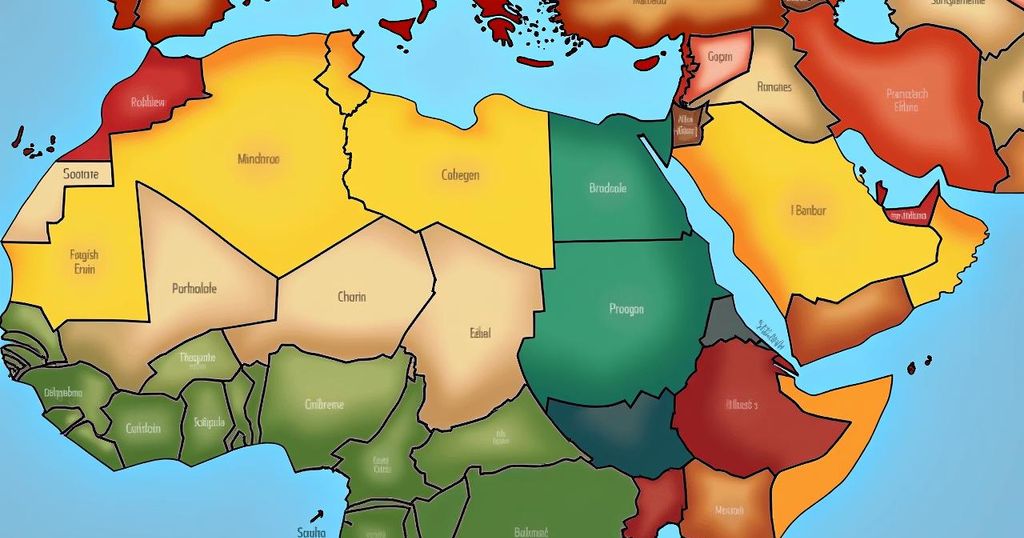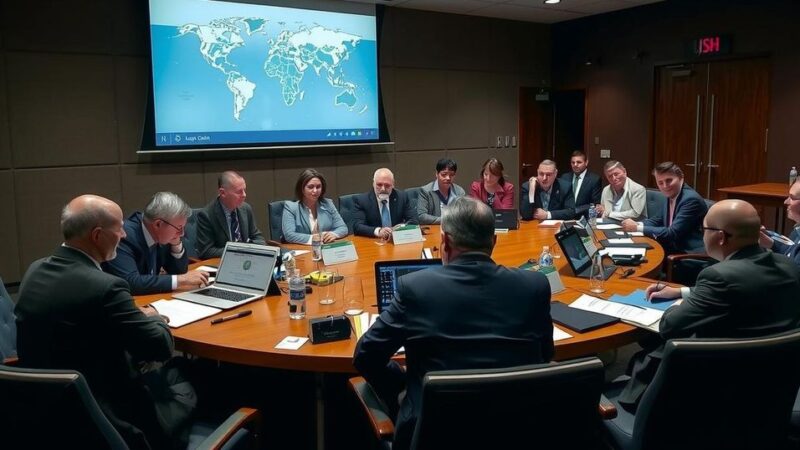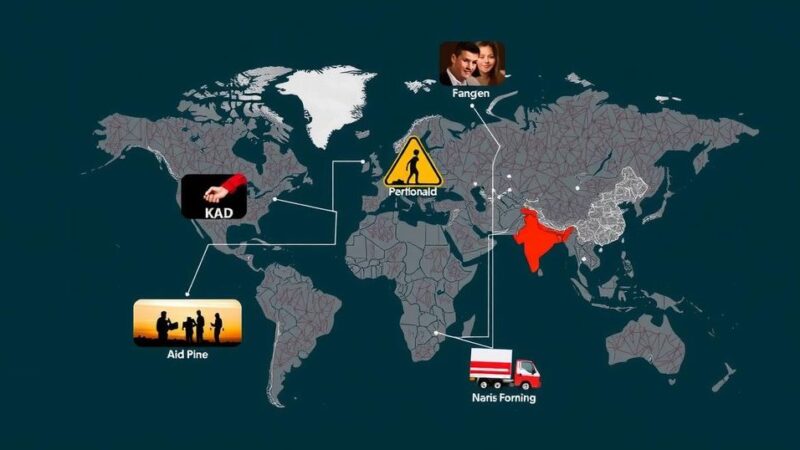Egypt is amplifying its regional influence in the Horn of Africa through a tripartite alliance with Somalia and Eritrea, underscoring its resolve to counter Ethiopian dominance. President Al-Sisi’s recent summit in Asmara aimed to strengthen bilateral ties, enhance military relations, and respond to rising tensions. Despite allegations of military involvement in Sudan, Egypt maintains its commitment to regional stability while seeking to reinforce its role as a key actor in Africa.
Egypt is actively intensifying its influence in the Horn of Africa through strategic partnerships with Somalia and Eritrea. Recently, Egyptian President Abdel Fattah Al-Sisi engaged in a tripartite summit in Asmara alongside Eritrean President Isaias Afwerki and Somali President Hassan Sheikh Mohamud. The primary objective of this coalition is to bolster regional control and establish a united front against Ethiopia. This summit took place following accusations from Mohamed Hamdan Dagalo, the commander of Sudan’s Rapid Support Forces, who alleged that Egypt had targeted his troops, thus revealing Cairo’s growing military involvement in the ongoing Sudanese conflict. This shift indicates a departure from Egypt’s previously cautious position during the war, highlighting its desire to assert itself as a pivotal regional power capable of safeguarding its interests. The timing of the summit is significant, as it has unfolded amidst escalating tensions in the Horn of Africa. The Eritrean Ministry of Information characterized the summit as an opportunity to “address the strengthening of relations between the three countries,” yet it is widely understood that the real intent may be to create a collaborative bloc aimed at confronting Ethiopia. This newly forged allegiance is anticipated to exacerbate the already fraught regional dynamics, particularly in light of burgeoning military ties between Egypt and Somalia. This strengthening of relations follows Ethiopia’s memorandum of understanding with Somaliland, granting it access to a port and naval base in the vicinity of the southern Red Sea. The Egyptian presidency has emphasized that the summit’s purpose revolves around discussing avenues to enhance bilateral relations across various domains while supporting regional development initiatives. However, Ethiopian Prime Minister Abiy Ahmed has expressed concerns over Egypt’s expanding regional influence and its affiliations with neighboring nations. He declared, “We will not allow them to harm us; we will humiliate anyone who dares to threaten us to deter them,” asserting Ethiopia’s unwavering stance on its sovereignty and dignity. Moreover, Egypt’s involvement in the ongoing crises across the continent is aimed at solidifying its role as a significant actor in African affairs. Egypt has continued to align with Sudanese army chief Abdel Fattah al-Burhan despite participating in wider diplomatic efforts to mitigate the conflict while facing accusations of utilizing American-made weaponry in its military actions in Sudan. Cairo, however, has firmly denied these allegations, maintaining that it is dedicated to ensuring the stability of Sudan and preserving its institutional framework. Ambassador Hussein Haridi, Egypt’s former deputy foreign minister, remarked that Egypt has been tirelessly working to resolve the war in Sudan from the onset, citing the welcoming of neighboring countries to seek political solutions as evidence of this commitment. On the other hand, political analyst Mohamed Torshin underscored Egypt’s aversion to any armed groups operating outside the direct control of official state institutions, aware that such situations can have considerable repercussions for its security.
Egypt’s strategic maneuvers in the Horn of Africa are predominantly driven by its historical and geopolitical interests in countering regional adversaries, particularly Ethiopia. The Horn of Africa holds significant strategic importance due to its proximity to the Red Sea, a vital maritime corridor. Egypt has a vested interest in ensuring regional stability, particularly given the ongoing conflicts in Sudan and the potential for escalation in relations with Ethiopia over the contentious Nile water rights and resource disputes. The formalization of alliances with Somalia and Eritrea serves both to counter Ethiopian influence and to establish a network of allies to support Egypt’s regional ambitions.
In conclusion, Egypt’s recent summit with Eritrea and Somalia marks a significant step in its efforts to enhance its regional presence in the Horn of Africa. This alignment illustrates Egypt’s strategic intent to counter Ethiopian influence amid ongoing tensions. As Egypt seeks to assert itself as a dominant regional actor, the repercussions of these developments will likely shape the security dynamics of the Horn of Africa, particularly as the situation in Sudan remains precarious and the threat of armed groups persists. The intertwined conflicts in the region present substantial challenges for Egyptian foreign policy, necessitating a delicate balance between asserting influence and fostering regional stability.
Original Source: www.atalayar.com






